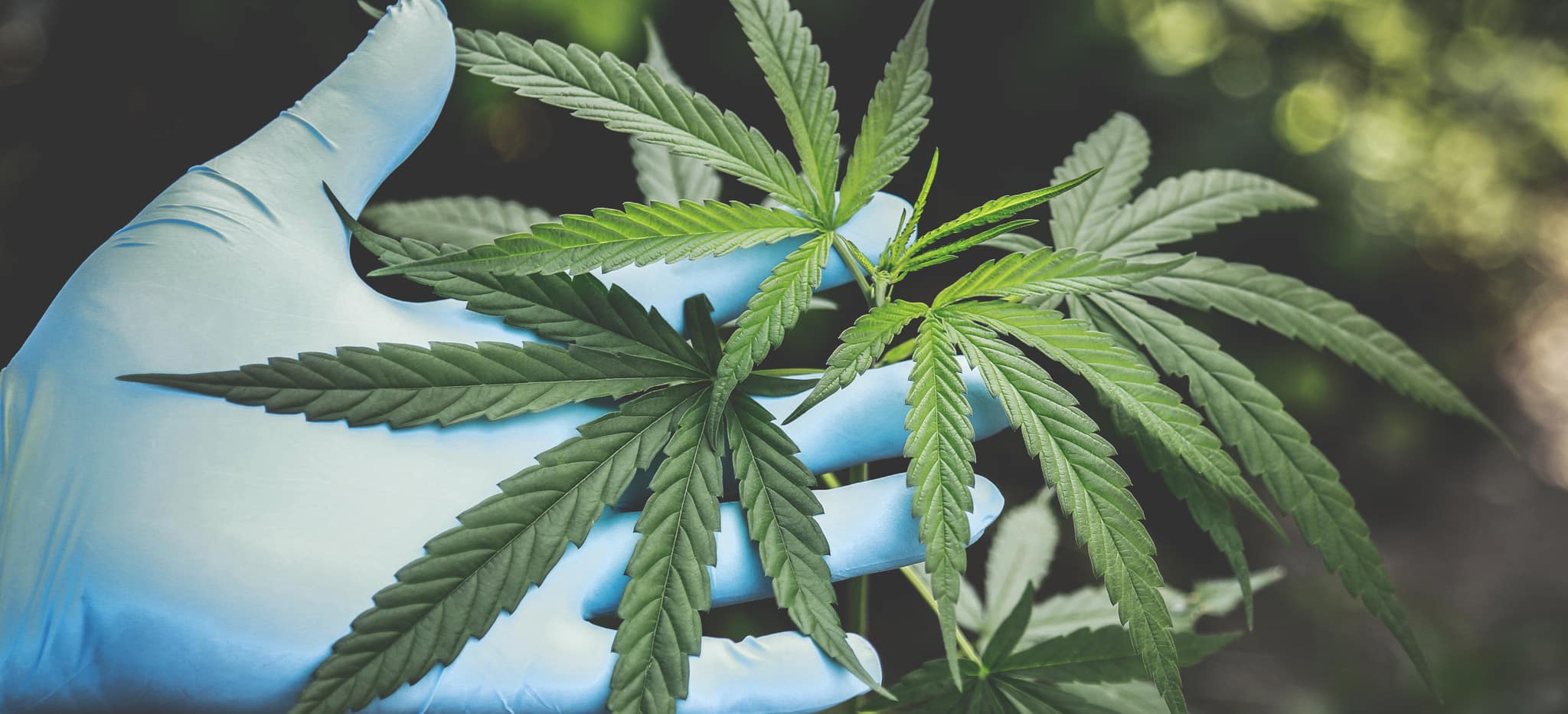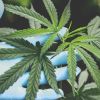Exploring the Origins of CBD: Where Does it Come From?
Introduction
CBD, also known as cannabidiol, is a popular natural remedy that has gained widespread attention in recent years. It is a compound that comes from the hemp plant, which is a member of the cannabaceae family. CBD is known for its various potential benefits, including its ability to reduce stress, improve sleep quality, and improve general wellness.
Hemp, the plant from which CBD such as those we stock in our store is derived, is a type of cannabaceae plant that contains low levels of THC, which is the compound that causes the psychoactive effects commonly associated with marijuana. Unlike marijuana, which is primarily grown for its THC content, hemp is grown for a variety of purposes, including fibre, seeds, and oil.
Who Discovered CBD?
CBD was first isolated in 1940 by Dr. Roger Adams, a chemist at the University of Illinois. Dr. Adams was one of the first researchers to study the properties of the plant and its various compounds. He was able to isolate CBD from the hemp plant and determine its chemical structure, which laid the foundation for future research into the potential benefits of this compound.
However, it wasn’t until several decades later that the true potential of CBD began to be realized. In the 1980s, researchers discovered that the human body contains an endocannabinoid system, which is a complex network of receptors that interact with cannabinoids like CBD. This discovery led to a new wave of research into the potential therapeutic benefits of CBD and other cannabinoids.
One of the key figures in this research was Dr. Raphael Mechoulam, an Israeli scientist who is widely considered to be the father of cannabinoid research. In the 1960s, Dr. Mechoulam was one of the first researchers to study the effects of THC, the compound in cannabis that causes psychoactive effects. He later turned his attention to CBD and was one of the first researchers to identify its potential therapeutic properties. In the 1990s, Dr. Mechoulam and his team were able to isolate and synthesize CBD, which allowed for further research into its potential benefits. They found that CBD could potentially be used to treat a range of conditions.
Dr. Raphael Mechoulam, passed away on March 9 2023 at his home in Jerusalem at the age of 92. He is widely credited for his pioneering work in identifying the structure and function of key compounds found in cannabis, which opened up a new field of research. Mechoulam was a long-standing faculty member of the Hebrew University, where he began his work in the 1960s.
Although the use of marijuana and other drugs became widespread during the same period, Mechoulam’s research was driven purely by a scientific curiosity about the chemical structures of plants and other natural products. Despite this, his groundbreaking work on cannabis earned him the nickname “the father of cannabis research.” His contributions to the field have had far-reaching implications, especially as the popularity of CBD has soared in recent years.
How is CBD made?
CBD is extracted from the flowers, leaves, and stalks of the hemp plant using various methods, including CO2 extraction and ethanol extraction. Once the CBD has been extracted, it can be further refined into different forms, including full-spectrum CBD, which contains a range of other compounds found in the hemp plant, including other cannabinoids and terpenes as well as broad-spectrum CBD and CBD isolate.
Harvesting the Hemp Plant
The first step in making CBD is to harvest the hemp plant. Hemp is typically harvested by hand or with specialized machinery, depending on the scale of the operation. Once the hemp is harvested, it is dried and cured to remove excess moisture. You can read more about the production process of Charlotte’s Web CBD oil here.
Extraction
The next step in making CBD is to extract the compound from the hemp plant. There are several methods of extraction, including:
- CO2 Extraction: This method involves using pressurized carbon dioxide to extract CBD from the hemp plant. It is considered to be one of the safest and most efficient methods of extraction.
- Solvent Extraction: This method involves using a solvent, such as ethanol or butane, to extract CBD from the hemp plant. While effective, this method can be dangerous if not done correctly.
- Oil Infusion: This method involves infusing the hemp plant with an oil, such as olive oil or coconut oil, and heating it to extract the CBD. This method is less efficient than other methods of extraction, but it is simple and can be done at home.
Further Purification
Once the CBD has been extracted from the hemp plant, it is typically in a crude form and may require blending and dilution to reach the desired cannabinoid level.
Isolation
The final step in making CBD is to isolate the compound in its pure form. This can be done through a process called crystallization, which involves dissolving the purified CBD in a solvent and then allowing it to crystallize. The crystals can then be collected and dried to create CBD isolate, this is the most heavily refined CBD available and does not contain other beneficial cannabinoids such as CBG.
Full-spectrum CBD, Broad Spectrum CBD and CBD Isolate
Full-spectrum CBD, CBD isolate, and broad-spectrum CBD are terms commonly used in the world of CBD products. But what do they mean and how are they different? In this article, we will explore the differences between these three types of CBD products and help you choose the best option for your needs.
Full-spectrum CBD is a type of CBD product that contains all the naturally occurring compounds found in the hemp plant, including cannabinoids, terpenes, and flavonoids. This means that full-spectrum CBD contains not only CBD but also THC, albeit in trace amounts (less than 0.3% by law in the UK). These trace amounts of THC are not enough to cause any psychoactive effects, but they may show up on a drug test.
Full-spectrum CBD is often preferred by those who want to experience the entourage effect, which is the idea that all the compounds in the hemp plant work together synergistically to enhance the effects of CBD. Some studies have shown that full-spectrum CBD may be more effective than CBD isolate alone.
You can read more about the benefits of Full-spectrum CBD here.
CBD Isolate
CBD isolate is a pure form of CBD that has been isolated from all other compounds found in the hemp plant. This means that it contains no other cannabinoids, terpenes, or flavonoids. CBD isolate is typically sold as a white, crystalline powder and is the most processed form of CBD available.
Broad-spectrum CBD
Broad-spectrum CBD is a type of CBD product that contains all the compounds found in the hemp plant, except for THC. This means that it contains other cannabinoids, terpenes, and flavonoids, but has been specially formulated to remove all traces of THC. Broad-spectrum CBD is often preferred by those who want to experience the entourage effect without consuming any THC.
Choosing the right type of CBD product
When it comes to choosing the right type of CBD product for your needs, there are several factors to consider. If you want to experience the entourage effect and are not concerned about consuming trace amounts of THC, then full-spectrum CBD may be the best option for you. If you want to avoid all other compounds found in the hemp plant, including THC, then CBD isolate may be the best choice. If you want to experience the entourage effect but want to avoid THC, then broad-spectrum CBD may be the best option. We’ve also prepared a great product finder tool that can recommend products based on your requirements. You can find it here.
It is also important to consider the quality and purity of the CBD product you are purchasing. Look for products that have been third-party tested and have a certificate of analysis available, such as ours here. This will ensure that the product contains the amount of CBD and other compounds advertised and is free from contaminants.
Hemp throughout History
Hemp is a versatile plant that has been used by humans for thousands of years. From textiles to paper to food, hemp has played an important role in human history. In this article, we will explore the history of hemp use and its significance.
Early History of Hemp Use The earliest recorded use of hemp dates back to ancient China, where it was used to make clothing, paper, and rope. Hemp was also used in traditional medicine to treat a variety of ailments. The plant was so important in ancient China that it was considered one of the “five grains,” along with rice, wheat, barley, and millet.
Hemp also played an important role in ancient India, where it was used to make fabric for clothing and paper. The plant was also used in Ayurvedic medicine to treat a variety of conditions, including pain, inflammation, and digestive issues.
Hemp Use in Europe
Hemp was introduced to Europe in the Middle Ages and quickly became an important crop. In fact, in some areas, farmers were required by law to grow hemp. The plant was used to make clothing, rope, and sails for ships. Hemp was also used to make paper, and some of the oldest surviving European documents are written on hemp paper.
Hemp was also an important crop in colonial America. The plant was used to make clothing, paper, and rope. In fact, the Declaration of Independence was written on hemp paper.
Hemp Prohibition
Despite its many uses, hemp has been illegal in many parts of the world for much of the 20th century. In the United States, hemp was outlawed in 1937 with the passage of the Marihuana Tax Act. This law effectively banned the production of hemp, along with marijuana.
The prohibition of hemp was largely driven by the fear of marijuana use. Hemp and marijuana are both members of the cannabis family, and they look similar. However, hemp contains only trace amounts of THC, the psychoactive compound that gives marijuana its intoxicating effects.
The popularity of hemp CBD in recent years
Legalization of CBD One of the most significant events in the history of CBD in the last five years was the legalization of hemp and CBD in the United States. In 2018, the Farm Bill removed hemp and its derivatives, including CBD, from the list of controlled substances. This law allowed American farmers to grow hemp for commercial purposes and opened up new opportunities for the CBD industry.
Rise in Popularity
Since the legalization of CBD, the compound has seen a surge in popularity. CBD products are now widely available in many countries such as here in the UK, and consumers are using them for a variety of purposes. One of the factors driving the popularity of CBD is the growing interest in natural and alternative wellness supplements.
In addition to being used for general wellness, CBD has also been embraced by athletes and fitness enthusiasts. Many athletes have spoken out about using CBD to aid in recovery with companies such as Charlotte’s Web becoming the CBD partner of choice for Major League Baseball.
Research on CBD
Another significant development in the history of CBD in the last five years is the growing body of research on the compound. While research on CBD is still in its early stages, there have been some promising findings.
One area of research that has shown promise is the use of CBD for anxiety. A 2019 study published in the journal “Frontiers in Psychology” found that CBD may help reduce anxiety in people with certain anxiety disorders.
CBD Regulations
As the popularity of CBD has grown, so too has the need for regulations around the production and sale of CBD products. In some countries, CBD is regulated as a medicine, while in others, it is classified as a food supplement such as here in the UK.
In the United States, the Food and Drug Administration (FDA) has taken a cautious approach to CBD regulation. The agency has approved one CBD-based drug, Epidiolex, for the treatment of certain types of seizures. However, the FDA has not approved CBD for any other use, and the agency has issued warning letters to companies making unproven health claims about their CBD products.
Future of CBD
The future of CBD looks bright, with many experts predicting continued growth and innovation in the industry. As more research is conducted, we may learn even more about the potential health benefits of CBD and how it can be used to treat various conditions.
One area of innovation in the CBD industry is the development of new and more effective delivery methods. For example, companies are now exploring the use of nanotechnology to create CBD products that can be more easily absorbed by the body.
CBD popularity in the UK
CBD or cannabidiol has become increasingly popular in the UK in recent years.
One reason for the popularity of CBD in the UK is its potential health benefits. While it is important to note that CBD products are not medicine and cannot make any claims to cure or treat any specific medical condition, many people use CBD to support their overall health and wellbeing.
Another reason for the popularity of CBD is the variety of products available on the market. CBD can be found in many forms, such as oils, capsules, gummies, and topical creams. This allows people to choose a method of consumption that suits their individual preferences and needs.
The ease of access to CBD products is another factor that has contributed to its popularity in the UK. CBD can be purchased from a variety of sources, including health food stores, online retailers such as us here at Savage Cabbage, and even some high street shops. This accessibility has made it easy for people to try CBD and see if it works for them.
In addition, the rise of the wellness industry has also played a role in the popularity of CBD in the UK. Many people are seeking natural and holistic remedies to support their overall health and wellbeing, and CBD fits into this trend perfectly.
The media has also helped to raise awareness about CBD and its potential benefits. As more people share their positive experiences with CBD, others become curious and may try it for themselves.
Finally, the legalisation of medical cannabis in the UK in 2018 has also contributed to the popularity of CBD. While medical cannabis is only available on prescription for a limited number of conditions, it has brought the conversation around cannabis and its potential health benefits to the forefront of public discourse.
In conclusion, the popularity of CBD in the UK can be attributed to a variety of factors, including its potential health benefits, the variety of products available, ease of access, the rise of the wellness industry, media coverage, and the legalisation of medical cannabis. As more research is conducted into the potential benefits of CBD, it is likely that its popularity will continue to grow.













